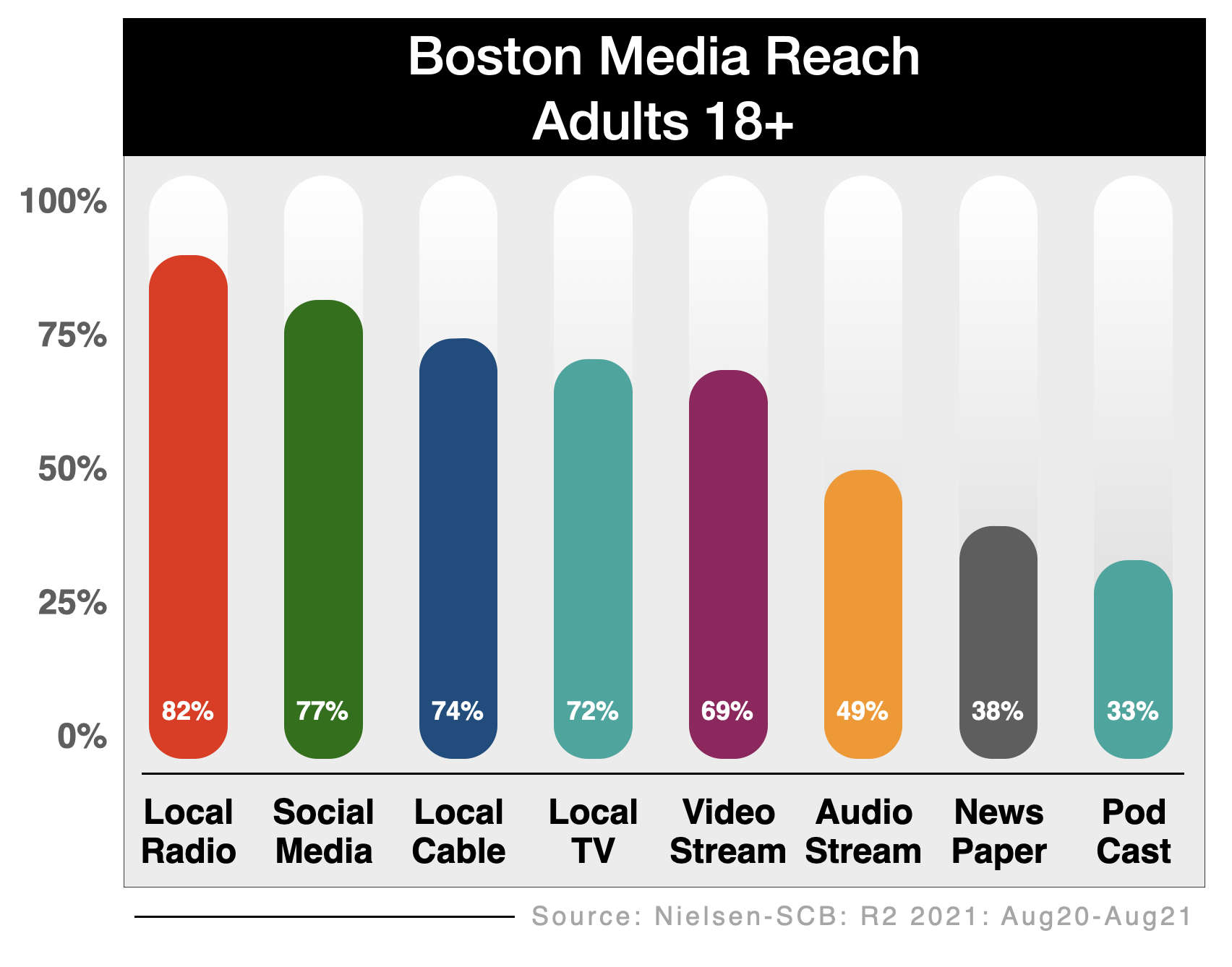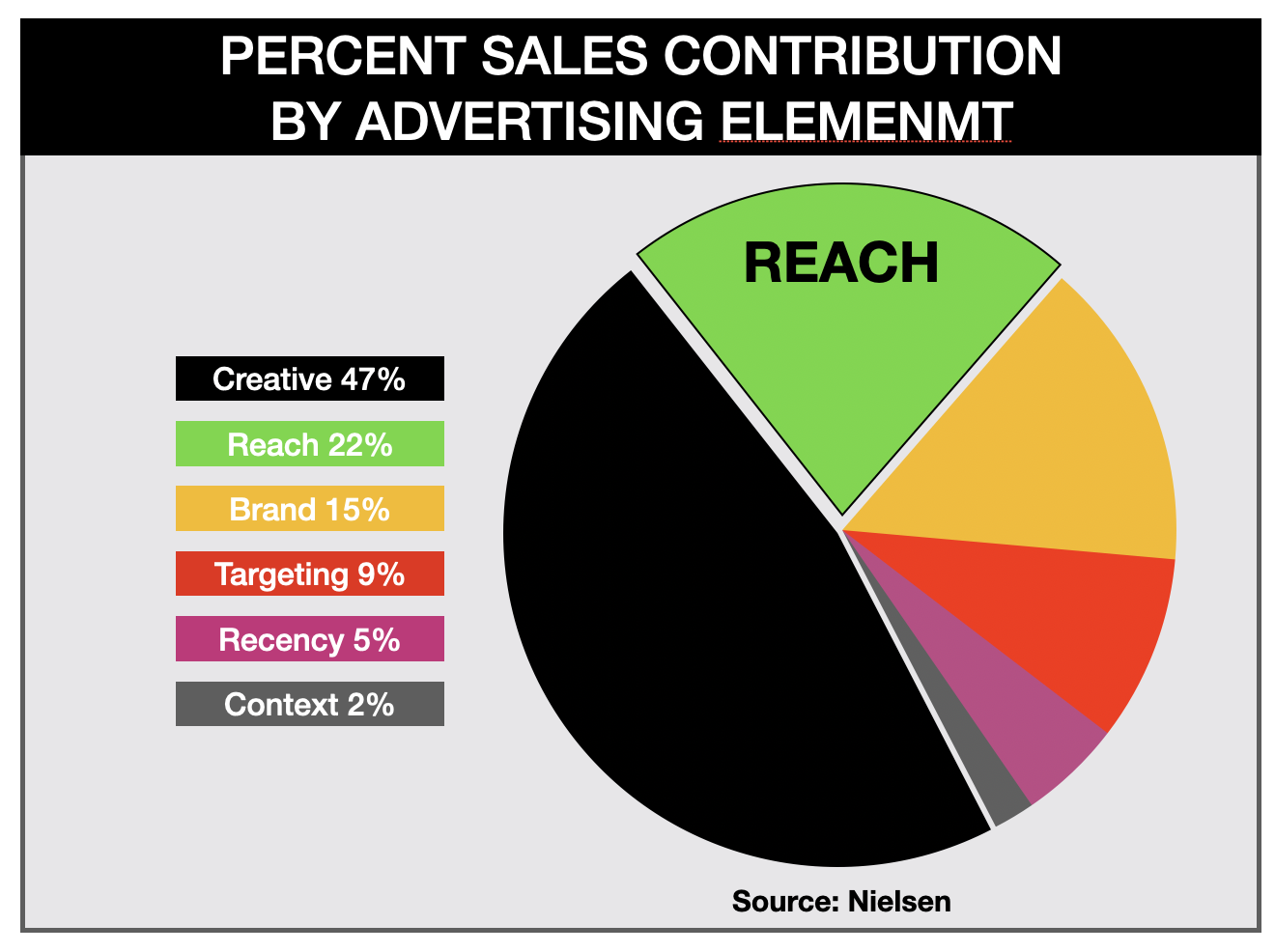 Boston area consumers are expected to spend close to $79.8 billion at retail in 2022, based on per capita spending estimates from the National Retail Federation (NRF). This would be an eight percent increase versus 2021.
Boston area consumers are expected to spend close to $79.8 billion at retail in 2022, based on per capita spending estimates from the National Retail Federation (NRF). This would be an eight percent increase versus 2021.
To capture significant shares of the increased retail spending, the 205,625 small business owners in the Boston area would typically invest in advertising. Persistent and pernicious inflation pressures, however, are starting to gnaw away at marketing budgets.
According to the National Federation of Independent Business Owners (NFIB), businesses cite inflation as their number one problem. For many Boston business owners, uncontrollable wholesale, transportation, and labor costs are forcing retailers to raise the prices they charge their customers. But, for many retail products, inflated retail prices can drive customers away.
To limit consumer price increases and still make a profit, Boston business owners, then, are forced to cut expenses, including advertising and marketing. This means it is now imperative that the limited investments retailers can make in advertising must deliver the strongest returns possible.
According to a recent study by Nielsen, advertising on Boston radio can provide the best return on investment (ROI) for local retailers.
From April through July of 2021, Neilsen was able to measure the sales results of a radio advertising campaign conducted by a major retailer. The study utilized portable people meter technology to segment consumers into two discrete categories: those who were exposed to the retailer's advertising campaign and those who were not.

Nielsen was then able to match the consumers in each segment to their credit/debit or shopper card purchase behavior. Consequently, the study was able to measure decisively how sales were affected by the retailer's advertising campaign.
Here are the key takeaways from the Neilsen study:
- One or two exposures to the radio campaign resulted in a 22.4% increase in the number of shoppers
- Three to six exposures to the radio campaign resulted in a 7.6% increase in the number of shoppers
- Exposure to the radio campaign increased the number of transactions among the retailer's existing customers by 11%
- Exposure to the radio campaign increased the number of transactions by the etailer's most active customers by 31.2%
- Exposure to the retailer's radio campaign generated a sales increase of 9.7%
Most importantly, the Nielsen study revealed that every $1000 that the retailer invested in the radio advertising campaign returned $13,000 in sales. A 13-time ROI.
Boston retailers should know that these findings support 22 other Nielsen studies that indicate, on average, that advertising on local radio delivers a 10-time return on investment.
Radio's ROI is partly driven by the medium's dominant reach among local consumers.
Every week, according to Nielsen, 3.3 million adults are reached by Boston radio stations. This is more consumers than are available via social media, local TV, local cable, local newspapers, streaming audio, and streaming video.
According to another advertising study by Nielsen, after the actual content of the commercial message itself, reach is the most potent advertising element that can drive sales. Reach is more important than brand, recency, or even context. Boston radio provides local business owners with the most significant reach among consumers.
As Boston retailers continue to find the most cost-effective way to market their goods and services as inflation erodes their marketing budgets, advertising on local radio is measurably the best option.
To learn more about Nielsen's latest ROI study, click here.
More Advertising Advice For Boston Small Business Owners
- Social Media Advertising In Boston: Should A Business Pay?
- Advertise In Boston: Retail Spending To Top $78 Billion in 2022
- Advertise On Boston Radio: AM/FM Still Top Choice In Cars
- How To Create A Podcast For A Boston Small Business
- Best Way To Fill Construction Job Openings In Boston





